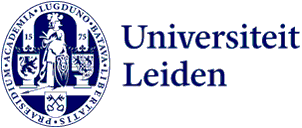
Historian Ronald Kroeze: 'We must view political integrity from a historical perspective'
The democratic rule of law is under pressure due to a series of scandals and integrity issues, as seen in recent parliamentary inquiries. Professor Ronald Kroeze explains: 'Public officials are expected to demonstrate complete dedication, but this standard is very absolute, and what we mean by it is changing.'
Why is the pressure on the rule of law* increasing?
*Despite the promising handbook for political office holders called 'Integrity', where the following is stated: 'Public administration serves the common good, in the service of society.'
‘In the 1970s, distrust emerged regarding whether politicians truly prioritise the norms of the democratic rule of law and the common good. The disappearance of traditional forms of social connection and political trust play a role, or as the saying goes: unknown makes unloved.'

'The influence of international political and economic developments is also evident; consider the significance of the American Watergate scandal (1972-1974). Initially, it focused on wiretapping devices in a Democratic Party office as part of the re-election campaign of Republican President Richard Nixon. However, further investigation revealed various other forms of political influence, such as the bribery of officials by the defence company Lockheed (known as the Lockheed affair).'
How did this manifest itself in the Netherlands?
'International integrity issues, such as the Lockheed scandal, also had repercussions in the Netherlands. For instance, regarding foreign officials there was Bernhard, who was not only the consort of Queen Juliana (1948-1980) but also Inspector-General of the Dutch Armed Forces; he appeared to have solicited and received donations in exchange for which he was to recommend Lockheed aircraft. In response to this, the Foreign Corrupt Practices Act (FCPA) was enacted in America in 1977, the first international anti-corruption law, which criminalised the bribery of foreign officials. Since then, bribery has been viewed much more as immoral, politically undermining, and economically inefficient.'
One of the topics you are investigating is the development of political integrity; what stands out to you in this regard?
'Integrity issues and anti-corruption efforts have always been present. Historically, they have received varying levels of attention. In addition to the 1970s, there was significant focus on the 'fight against corruption' in the 1990s, and it was again a high priority on the agenda; regulating and promoting the free market was seen as fundamental to a well-functioning democracy. Following the American FCPA, the Organisation for Economic Co-operation and Development (OECD), of which the Netherlands has been a member since 1961, focused on new anti-corruption legislation.'
You mention that these issues have always been present. How do you see this reflected today?
'In 1997, the OECD anti-bribery convention was signed. Since then, countries have been required to criminalise bribery and take measures against money laundering and improper political influence. Since then, anti-corruption laws and integrity codes have increased. There is a growing belief that politics is inherently susceptible to bribery and therefore should be approached with suspicion.'
You teach* about the development of integrity among public officials; what makes this knowledge relevant and applicable?
*Centre for Professional Learning, Academy for the Rule of Law programme
‘The history provides concrete integrity issues that can be analysed and discussed. Questions such as: why is this or that considered corruption? You will examine issues from a broader perspective on ideas regarding good governance and political-economic changes. In a modern democracy, public officials are expected to be dedicated to serving the public good; this has become a norm that is emphasised more. At the same time, certain 'contradictions' are also valued.'

What contradictions are we talking about, for example?
'Such as members of the Senate who also hold other positions to gain insights into what is happening in society and in the business world. So standards of good governance, that seem abundantly clear, turn out to be more complex in historical and political reality than imagined after all.
And how do you view non-integrity or corrupt behaviour?
'If a public office holder misuses public resources by using that position purely for a private interest, that cannot be tolerated. However, the point is that many corruption cases are complex, for the reasons I mentioned earlier. This often makes integrity somewhat diffuse; it is a grey area. Because what exactly do we mean? And what do we expect? That is something we must continually discuss. Good governance is never complete.'
Text: Margo Klein
Explore the Academy for the Rule of Law
A democracy stands or falls on individuals who have developed a sound rule-of-law compass. Such a compass helps to address the complex questions that come with a democracy in a fair and balanced manner.
More information (in Dutch)